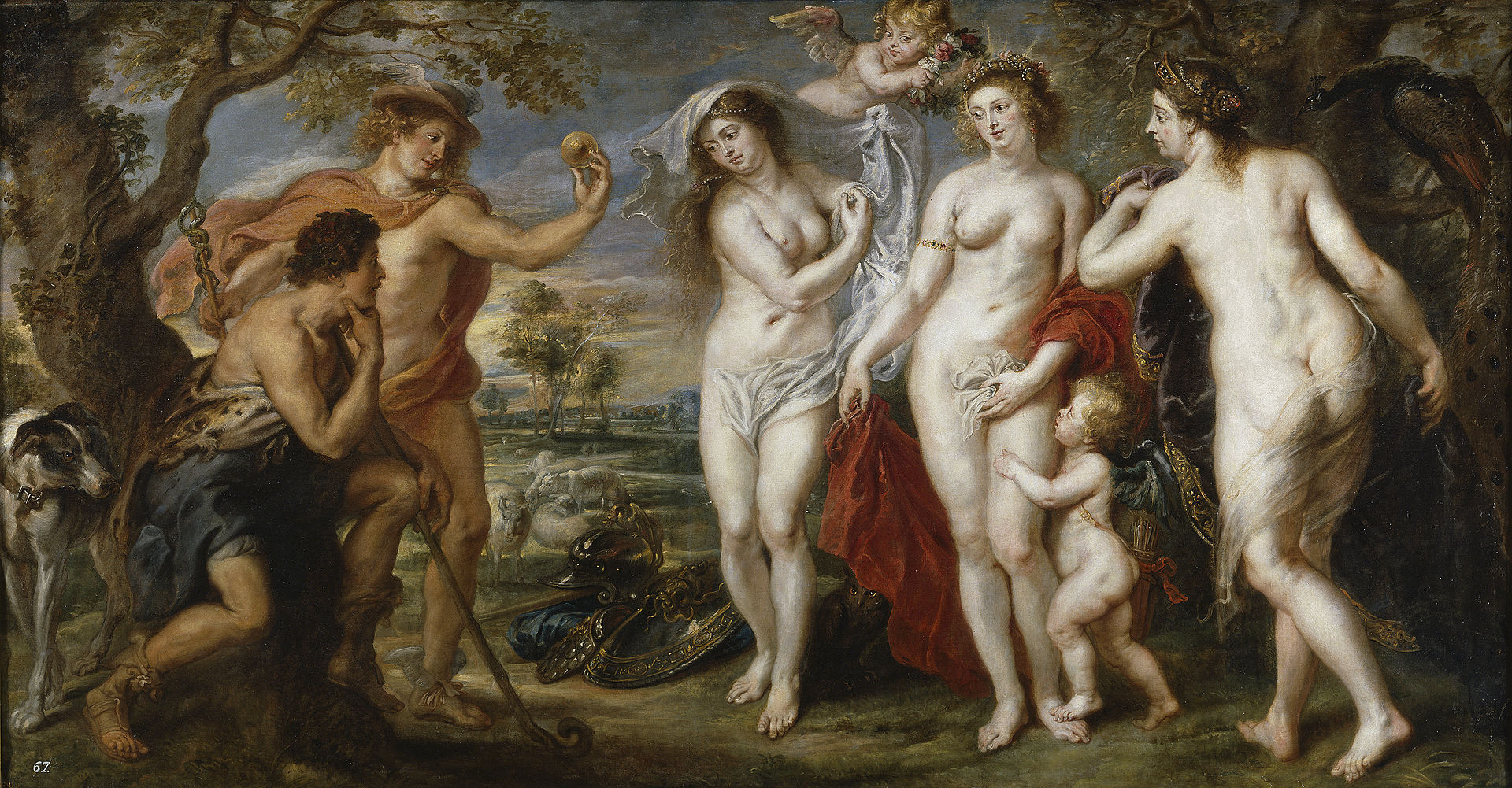I once read that “When elephants fight, it is the grass that suffers”, an ancient African proverb so simple, yet inspiring. A phrase summarizing the outcome of all the fake battles we mortals take part in, along with giants against their kind, believing to be equals and forgetting that in the world of titans, size truly matters.
Regardless of what team you decide to side with, winning or losing, you’ll always suffer collateral damage in a war not conducted on your ground and with your ilk. In a chaotic and gory battlefield, survival leads the way and power is an undeniable advantage.
So always remember that when giants play Chess, we majesty’s knights, merely stand as weapons and shields used for their convenience. And no matter what, don’t be fooled by their promised rewards.
Don’t be a “Paris”, the Trojan prince, lured by beauty and love. The one who sacrificed his family and kin, to Aphrodite’s glory in a pastime play of Gods.
When retelling the story of Paris or the so-called “judgment of Paris” story, many tale weavers begin their tale with the myth of the apple of discord, but I see more fit to start our story today with the birth of the Trojan prince.
It is said, that when being pregnant with her son, Queen Hecuba had a dream of giving birth to a flaming torch covered with snakes. A vision interpreted by the seer Aesacus, as the coming of a child who will cause the downfall of the great city of Troy, since the flames inspire destruction while the snakes add the element of treachery and danger.
Concerned by the foretelling of the prophecy, Queen Hecuba and her husband King Priam, ordered some servants to kill the infant after his birth. But unable to perform such acts or simply hands tied by destiny, the servants decided not to kill the child and leave him on the mountain Mount Ida surrendering him to fate.
Found by a shepherd, Paris survived, grew up, and reunited with his true family, to be forever known and remembered for his decisive intervention in the Trojan War.
But, after all these tragic events, is Paris truly the one to be blamed?
The judgment of Paris is one of the major episodes leading to the Trojan War, and the story goes way back to the wedding of Peleus and Thetis, to which Eris, the goddess of discord, was not invited.
Seeking revenge, Eris used one of her tricks to sow discord among the gods, and what could be better than a little competition between the powerful, impulsive, and conceited goddesses? She threw a golden apple inscribed with the words “to the fairest” to the wedding guests.
Three goddesses disputed the title, each of Hera, Athena, and Aphrodite claimed to be the fairest of all, urging and pleading with Zeus to end the vanity fueled dispute.
Smart enough not to interfere in women’s affairs, Zeus appointed a human “Paris of Troy” to choose the winner of the divine beauty pageant, and each goddess tried to bribe Paris with a glorious reward.
Hera offered him kingship and power, Athena offered him wisdom and war skills, and Aphrodite offered him the love of the most beautiful mortal woman, Helen of Sparta, wife of the Greek king Menelaus.
To the beautiful Aphrodite, Paris offered the apple, accepted her offer, and crowned her the fairest of the three goddesses. Aphrodite indeed kept her promise, and Paris won the heart of the beautiful Helen, but the consequences of his acts were beyond his reach. Along with love, he also gained the enmity of all those against his choice and prize, especially the resentful Hera.
After the union of Helen and Paris, the Greeks bound by a blood oath to defend the marriage of Helen if she was ever taken away or abducted, came to the aid of the husband Menelaus, engaging in the legendary Trojan war.
The Judgment of Paris is an epic tale, a story passed down from one generation to another, to remind us all that we humans can all be a Paris, summoned in a divine comedy, used for their amusement, then simply thrown away. Flattered for being a supreme being, we seem to enjoy our insignificant role in the cosmic play, forgetting or ignoring the true power that we do not possess.
And even today when gods seem not to directly interfere in our daily life, substituted by their human kind, be careful not to be a gladiator caged in their arena, a toy of flesh and blood doomed to be used, then abused and to their honor sacrificed.
Meryem !
